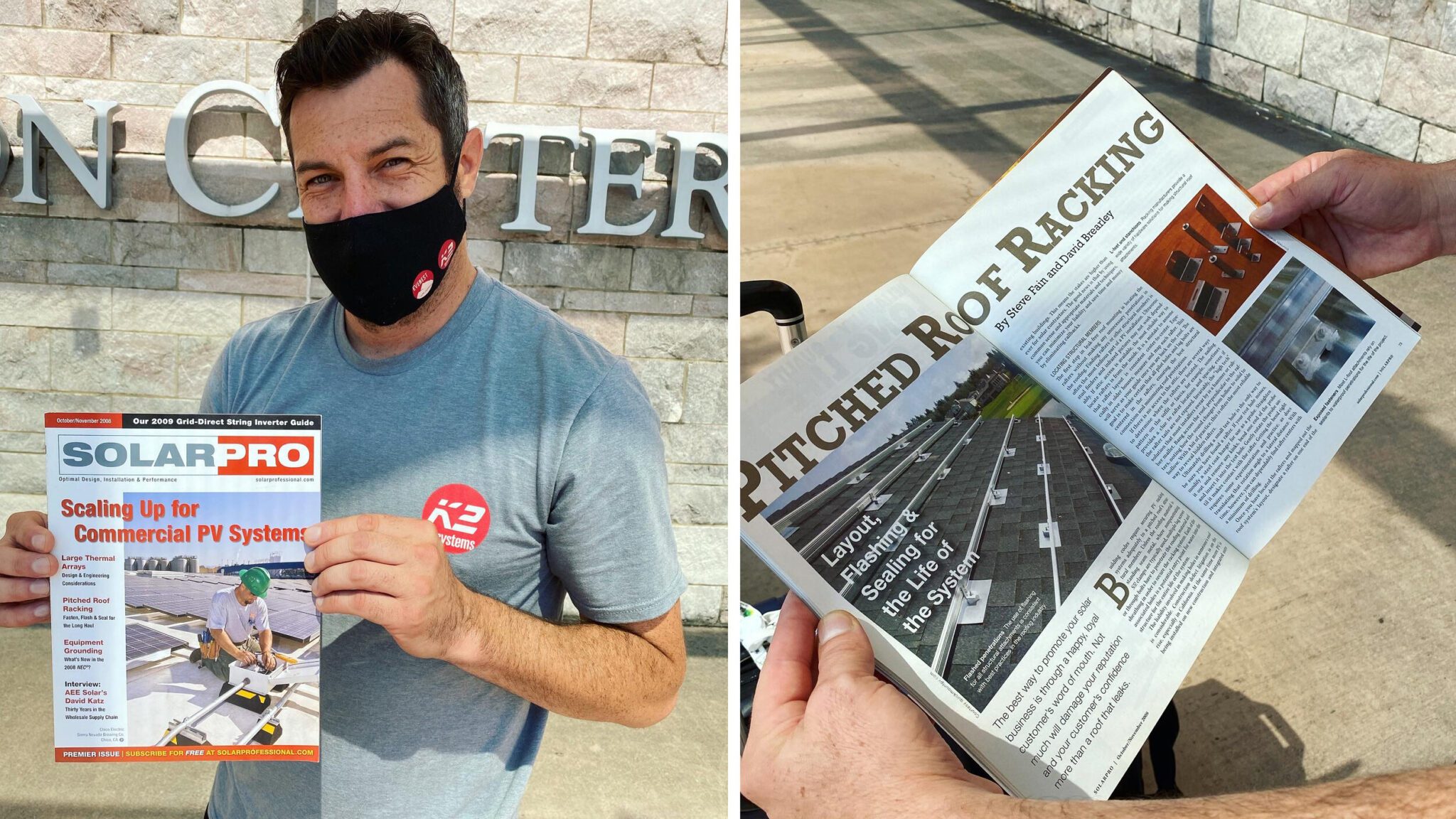Using Content Marketing to Power Growth in the Solar and Energy Storage Industries
Actionable content that meets real-world needs is constantly in demand, especially in high-growth technical industries. Consider the state of the solar, energy storage and solar-plus-storage industries as an example. In order to support global market expansion, companies in this space are constantly recruiting newcomers and converts. At the same time, the enabling technologies are rapidly evolving. Last but not least, relevant codes, standards and best practices invariably lag behind the development of disruptive new technologies.
This dynamic is what makes quality content such a powerful marketing tool. Accurate and timely information is not only much needed in the solar and energy storage industries but also in short supply. Strategically publishing actionable technical content can be extremely influential in a market that is hungry for information. Meeting this appetite for quality technical content is the basic premise behind content marketing.
What is Content Marketing?
A departure from talking directly about the value proposition of a product or service, content marketing seeks to publish or share valuable information to a highly qualified target audience. The primary goal of content marketing collateral is to educate and inform. By publishing pearls of audience-specific wisdom, companies establish themselves as go-to subject matter experts. In the process of gaining audience attention, successful content marketing builds trust and loyalty. This is a win-win proposition.
Regardless of the industry, market leaders are often those publishing content that is both original and 100% germane. For companies working to develop a next-generation power and energy ecosystem, this is a challenging endeavor. The audiences you are trying to reach are knowledgeable, technically proficient and have access to a world of information at their fingertips. This is an audience, in other words, that is difficult to educate, inform and impress. It is not impossible, however.
Wanting to spotlight its groundbreaking work to improve bifacial bankability, Nextracker engaged Mayfield Renewables to produce a highly targeted, long-form technical white paper. As detailed in our project case study, this white paper presents rigorous empirical test data and software modeling results to educate performance engineers, quantitative analysts and other project stakeholders. Within weeks of its publication, “Quantifying Your Bifacial Gains” was the best-performing white paper in Nextracker’s history. The data and storytelling are so compelling that bifacial module manufacturers have been providing this white paper to their customers as an educational resource.

Who Is Your Target Audience?
Companies in the renewable energy ecosystem need to communicate highly technical information and value propositions to sophisticated audiences. To the extent that you are able to engage this audience and hold its attention with actionable technical content, you also have an opportunity to convey the unique value proposition associated with your products or services.
In the solar and energy storage industries, your target audience may include project developers, EPCs, performance engineers, quantitative analysts, scientists, researchers, financiers, insurers and independent engineers. These sophisticated stakeholders are unlikely to be influenced by clumsy product pitches. They have seen that song and dance before and will dismiss anything that smells like a traditional marketing campaign. At the same time, these audiences rely on and value deep subject matter expertise. They literally cannot do their jobs without timely and actionable technical content.
Who Are Your Subject Matter Experts?
In-house subject matter experts (SMEs) are foundational to quality content marketing. The simplest way to produce on-point content marketing collateral is to publish technical content that addresses known pain points within the industry. Your in-house SMEs not only know the answers to the technical questions the industry is struggling with, but also they know what questions customers are asking. This insight is critical and beneficial.
In a conventional marketing campaign, an application engineer’s insights into customer questions and pain points are too often overlooked and marginalized. In a content marketing campaign, that perspective takes center stage. For every customer that calls your company for technical support related to a specific issue, there are dozens more customers trying to answer that same question. By answering these burning questions before potential clients ever pick up the phone, you are effectively bending the arc of the buyer’s journey toward your product or service.
How Will You Tell Your Story?
Solar and storage industry professionals are well-versed in right sizing power production systems. Selecting the optimal vehicle or piece of collateral for a content marketing initiative is a similar exercise. Content marketing can and should take diverse forms as needed to reach individuals wherever and however they consume media. At the same time, it is important that content marketing forms match the function.
Some content is best suited for sharing via social media or YouTube channels. Other content is better suited for sharing via a website blog, e-newsletter or trade publication. Stories with a strong visual component are often ideal for 30- to 90-second video productions. Stories that are driven by data may require a longer-form treatment, complete with data visualizations and technical illustrations. Consider the needs of your audience, as well. While a long-form white paper is an excellent resource for a performance engineer working from an office, a five-minute how-to video is better targeted to the needs of installers in the field.
Note that telling these stories is a delicate dance. On the one hand, professional engineers are not ideally suited to produce engaging and easy-to-read content marketing collateral. On the other hand, marketers are not ideally suited to produce subtle and nuanced value-added technical content. It takes a team and multidisciplinary approach. Discipline is also paramount in content marketing, as quality content is more important than quantity. The fastest way to lose credibility with a technical audience is to present inaccurate information or use the wrong terminology. Marketing professionals may not know the technical distinction between power and energy; your target audience likely does.

What Are Your Secondary Use Cases?
When properly executed, content marketing is a renewable resource that provides a generous return on investment. This is in part due to the fact that you can strategically repurpose and redistribute quality content via multiple channels. Long-form technical content is ideally suited for reuse for a corporate blog; LinkedIn and social media posts; contributed content in trade publications; teaser copy for gated content; or webinar presentations. Each of these opportunities for strategic reuse will reach a slightly different audience. Moreover, communicating via multiple outlets amplifies your message.
Quality educational and actionable content also has a long shelf life. This is true in spite of the fact that technologies and design practices change over time. Content that is relevant to design engineers today may be useful to operations and maintenance technicians in the future. The more foundational and essential the information, the longer its shelf life.
In August 2021, I attended the North American Board of Certified Energy Practitioners (NABCEP) Continuing Education Conference in Knoxville. At the convention center, I ran into a well-known industry trainer, Johan Alfsen, who mentioned that he had brought one of my bylined articles to share with his NABCEP class. Johan then proceeded to pull out a copy of the very first issue of SolarPro, which was published in October 2008. While it is rare for technical content to have a 13-year shelf life, this just goes to show that quality technical content never goes out of style.
Author David Brearley is a Senior Project Manager at Mayfield Renewables. To get in touch with David, or to start a content marketing project with our team, contact us here.










